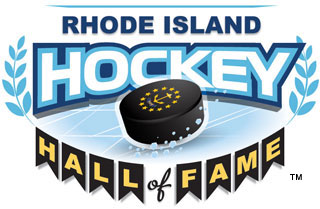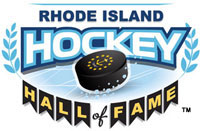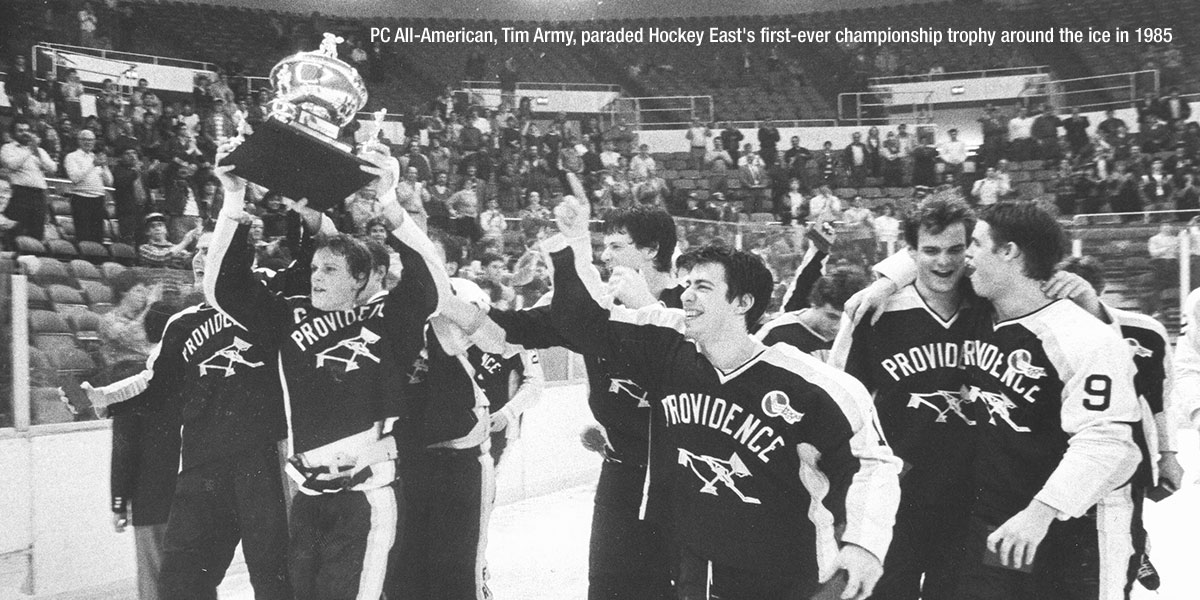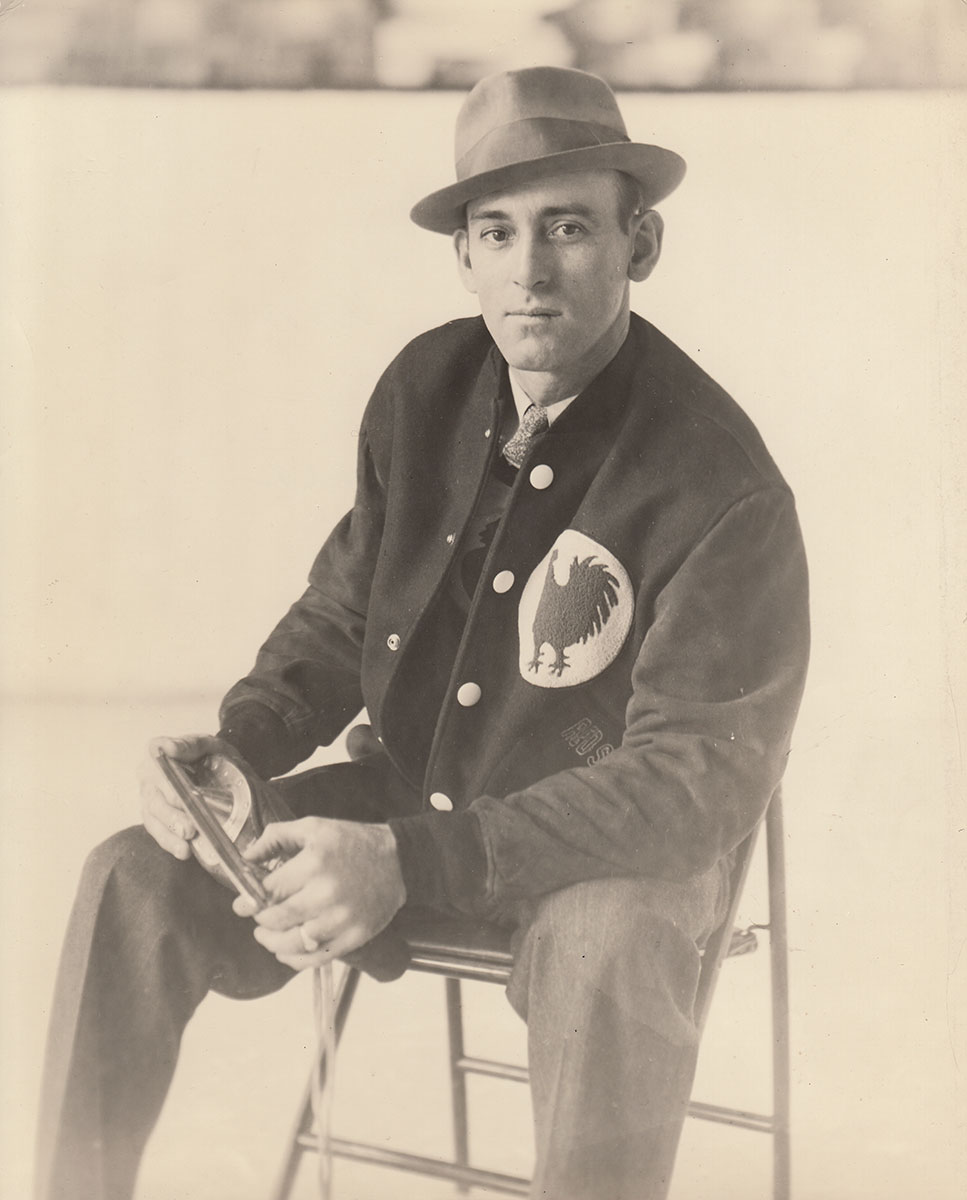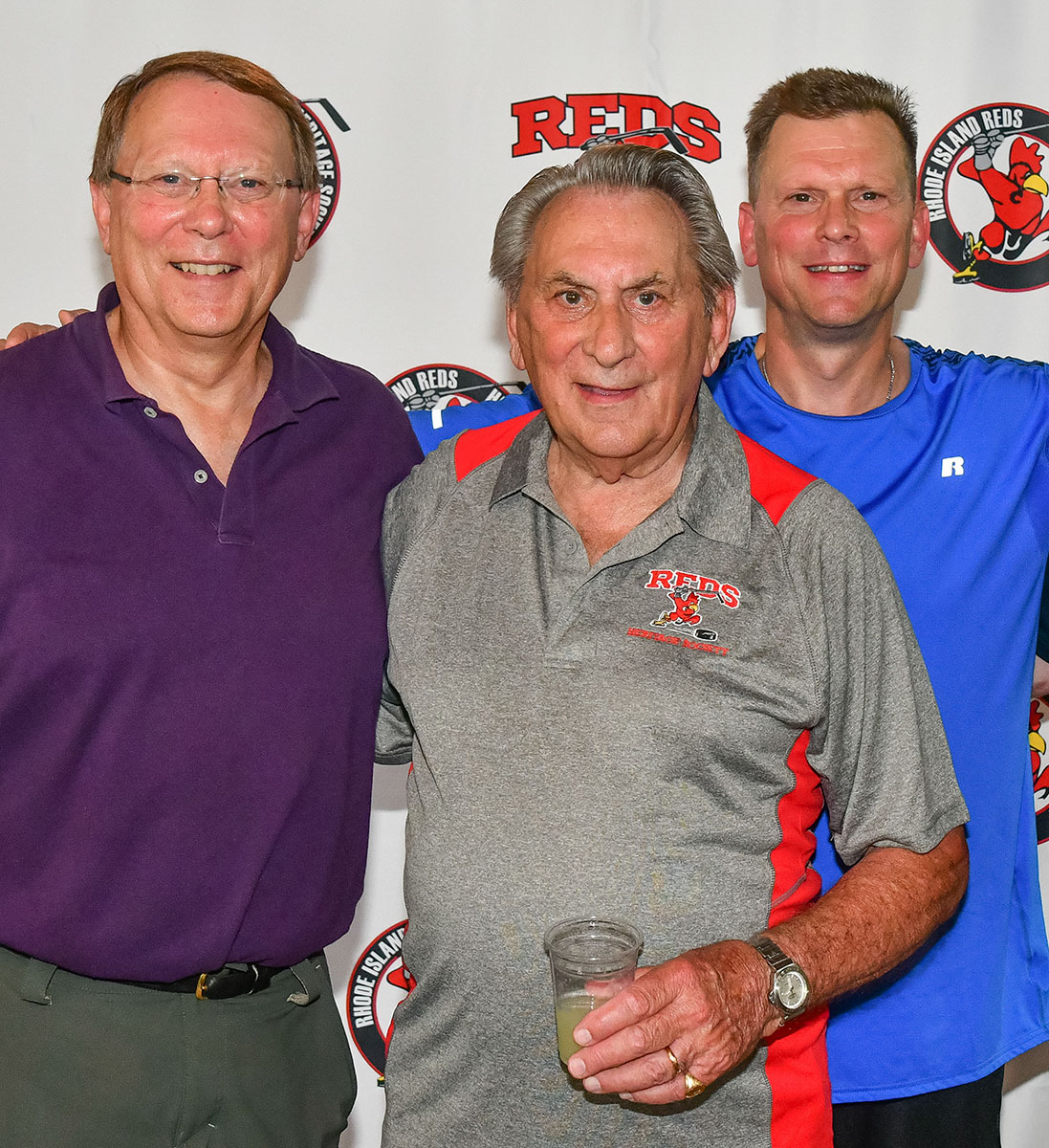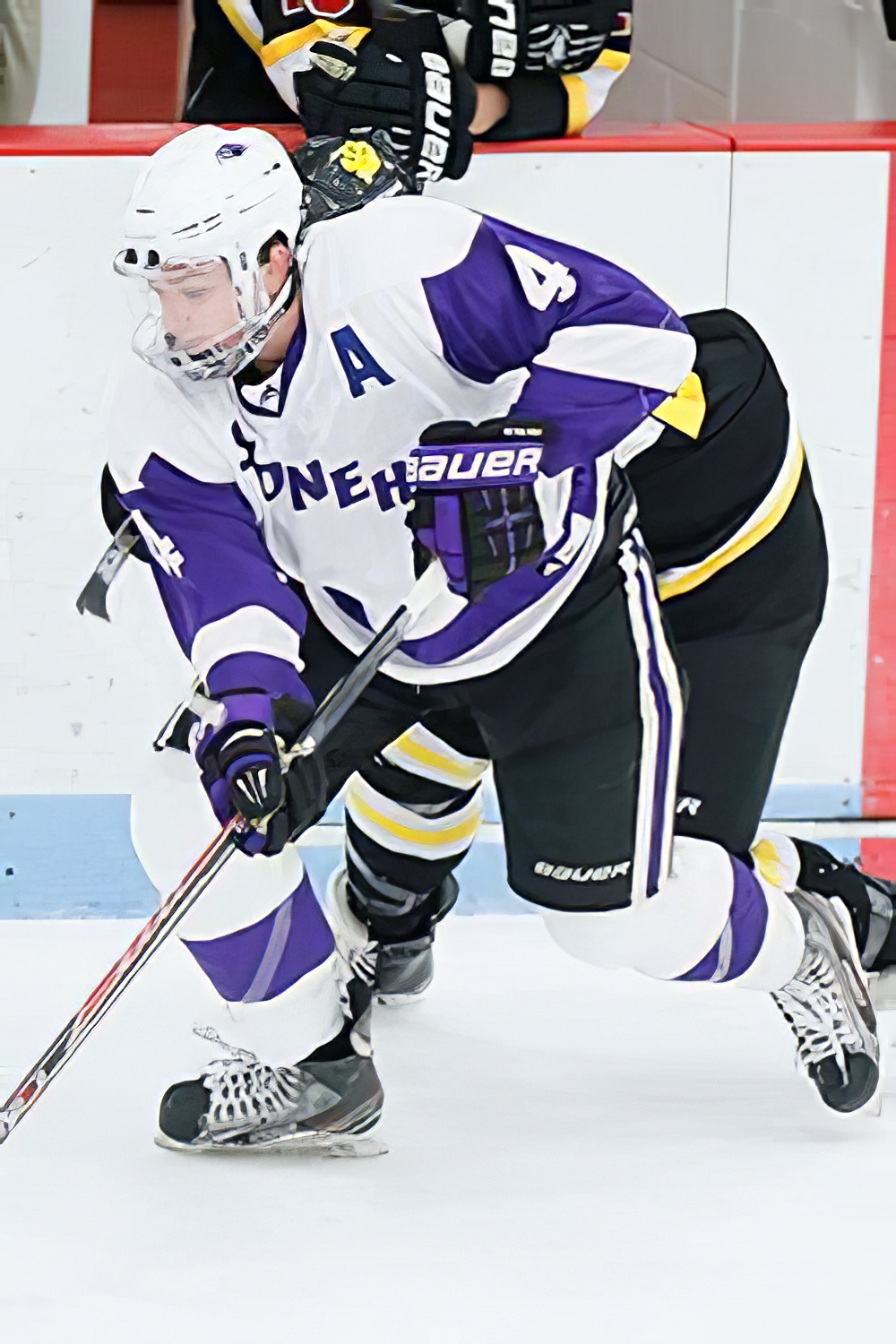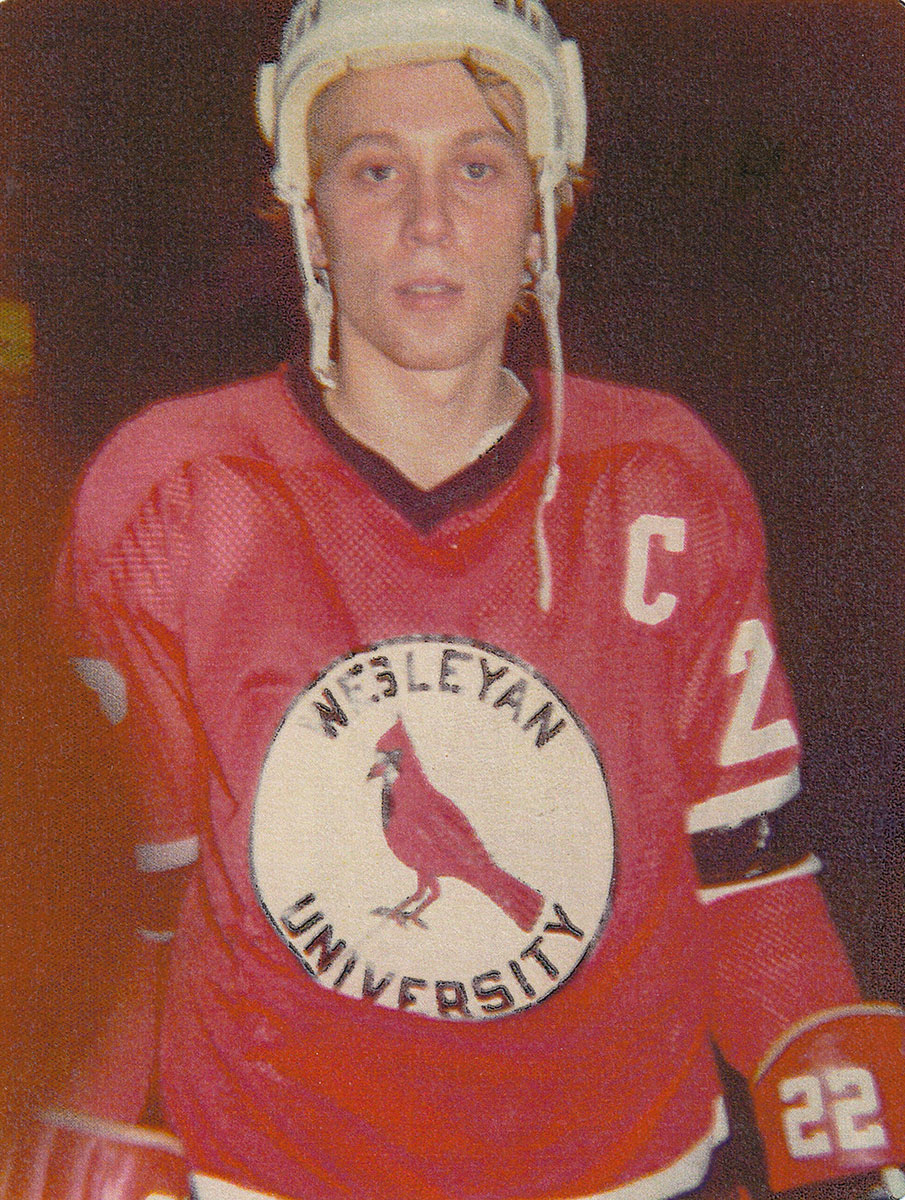The story of the Army family’s love affair with hockey and what it has meant in Rhode Island and beyond starts not with skates and sticks, but with balls and bats.
George Army, born in 1899, was for many years a minor league catcher and first baseman.
According to Baseball Reference, his career started at age 20 with Waterbury of the Eastern League. While he spent most of his time in Class B, he faced some of the greats of his day in exhibition games against barnstorming teams of major league stars.
“He played against (Lou) Gehrig. He played against (Babe) Ruth. He hit against Chief Bender and Lefty Grove,’’ said his grandson, Tim Army.
As George Army’s baseball career wound down in the 1930s, a man he had met along the way, Jean Dubuc, offered him a job as trainer for the Providence Reds of the Canadian-American Hockey League.
Dubuc was a former major league pitcher. After retiring from baseball, Dubuc was general manager and president of the Providence Reds.
“My grandfather said, ‘I don’t know anything about being a trainer.’ Dubuc said, ‘You’ll figure it out, come do it,’’’ said Tim Army, whose resume includes 15 years on NHL coaching staffs.
George Army took the job and moved to Providence from Bridgeport, Conn.
In the decades since then, the Army family has had an outsized influence on hockey in this state, from the youth level all the way to the pros. In recognition of that legacy, George and Tim will be inducted into the Rhode Island Hockey Hall of Fame this summer.
George Army spent three-plus decades with the Reds, sharpening skates, mending equipment and attending to players’ bump and bruises. Legend has it that he learned how to stitch cuts by practicing on oranges that he sliced open. Along the way he mentored Pete Demers and Tom Woodcock, who went on to long careers as NHL trainers.
George, who had never played hockey, steered his son, Tom, toward baseball.
“My grandfather wanted my dad to be a ballplayer,’’ said Tim Army. “My dad was a pitcher and a good pitcher. There was no youth hockey then. My dad was obviously around the Reds all the time and would play pickup (hockey), but there was no organized youth hockey at the time. When he went to La Salle (Academy), it was the first time he played organized hockey and he loved it.
“As my dad played more hockey, he liked hockey more than he did baseball. My dad says to this day that it hurt my grandfather, who really wanted him to be a ballplayer, but he understood.
“My dad transferred to Hope for his senior year and then went to Providence College,’’ where he pitched for the baseball team and captained the hockey team in 1952-53.
All three of Tom Army’s sons – George Army’s grandsons – distinguished themselves as hockey players.
– Tom Jr. was a fine player at East Providence High School who went on to earn all-ECAC Division III honors twice at Wesleyan University. He holds school records for career assists with 115 and for assists in a season with 36.
– Bill was an All-Stater at East Providence High and a star player on the Townies’ team that won the state and the New England championship in 1975. He then spent a year at Andover Academy, where he broke the school’s scoring record. He went on to be an All-American at Boston College, where he is a member of the school’s athletic hall of fame. He played in the NCAA national championship game against Boston University in Providence in 1978. After college, Bill played in the AHL and IHL.
– Tim followed in Bill’s footsteps at East Providence High, earning All-State honors. After his senior year in high school, he was selected by the Colorado Rockies in the 1981 NHL Draft. Then it was on to Providence College, where he was an All-American and a Hobey Baker Award finalist in 1985, as the Friars reached the NCAA title game against RPI. Tim played in the AHL and in Europe before embarking on a long coaching career in Hockey East, the AHL and the NHL.
To grow up in Tom and Betty Army’s house in East Providence was to be immersed in hockey.
“My dad built lockers for us downstairs in the basement and we all hung our gear up. We had stick racks and the whole thing. We had the backyard rink,’’ said Tim Army, who is in his third season as head coach of the AHL’s Iowa Wild.
And it wasn’t only the Army boys who benefitted from the family’s passion for hockey.
Around 1970, Tom Army was one of the founders of East Providence Youth Hockey, playing out of the brand-new Dudley Richards Rink in Rumford. It became a feeder program for the city’s high school team, which quickly grew into a powerhouse.
A lot of youngsters from East Providence, including the Army boys, had played for Edgewood, which operated out of the Ice Bowl in the Providence shipyard, on the site of what is now the Johnson & Wales University harbor campus.
With the opening of Dudley Richards Rink, the formation of East Providence Youth Hockey and the popularity of Bobby Orr and the Boston Bruins, interest in hockey exploded.
“Everything changed at that point in East Providence. EPYH was the feeder. It boomed. It’s the Bruins. It’s Bobby Orr. That drove everyone in New England and in Rhode Island, specifically. It created such an environment in East Providence that we started to produce a lot of good hockey players from the city,’’ said Tim Army.
It was a glorious time to be a young hockey player in East Providence.
“What was so great about it was squirts played at 2 o’clock on Sunday, peewees played at 3, bantams played at 4, every Sunday afternoon at Dudley Richards. My brother Tommy was in high school and Billy was playing peewees and then bantams.
“Everyone went to the high school game – it was packed, you couldn’t even get in the building. So I’d see Tommy play on a Saturday night. The next day, you’d come out of your dressing room and sit in the stands and watch the peewees play. And I’d stick around and watch the bantams, watch Billy play.
“It gave you something to reach for. We were all a part of the community. I remember dropping Tommy off at the bus with my dad when I was little. They were going to play in Burrillville and it would be packed in Burrillville or over at Cranston or wherever to play (Cranston) West or East. Going up to Mount.
“That passion was really built through East Providence Youth Hockey all the way up to the high school. There were a lot of great players that went through there. The high school had a lot of success and a lot of players went on to play college hockey at different levels and some went on to play pro hockey.
“I dreamt of someday playing for the high school. There was a community feel. No one got ahead of themselves. It was a unique time. The program helped me develop as a player, just being around the older kids and watching and learning, helping me develop. The whole environment made you fall in love with the game and take the game as far as you could take it.’’
No one in the family has taken it further than Tim, who has been assistant coach with the Anaheim Mighty Ducks, Washington Capitals and Colorado Avalanche.
For a couple of years after college, Tim played in the AHL and in Europe, then decided to take a crack at coaching.
“I just felt like I was going to spin my wheels a little bit going back (to play in Europe). I wanted to coach. Tommy at that time was coaching and teaching at Kent School (where one of his players was a promising defenseman named Jack Capuano). Billy was coaching and teaching at Pomfret School,’’ he said.
Tim took a job teaching history and coaching hockey at Portsmouth Abbey. He and wife Sue moved onto campus that summer, but within a couple of weeks, PC head coach Mike McShane offered Tim a job as an assistant coach. He took the job and has been coaching ever since.
After six seasons at PC, Tim moved up to the NHL, working as an assistant coach with the expansion Mighty Ducks under former PC superstar Ron Wilson, who had been an East Providence High teammate of Tom Army.
“It was an incredible experience there,’’ said Tim. “I was offered the job at Providence College the next summer, before Paul (Pooley) took it, by (athletic director) John Marinatto. The job at PC was the dream job for me, but by the next summer it had all changed.
“I wanted to stay in Anaheim. I got a taste of the NHL. We had a great year. I loved it. The World Championships were awesome. We ended up fourth. We beat the Russians in the quarterfinals, then lost to the Swedes and Finns in the two medal games. It just opened up a different world to me and I was expanding as a coach with Ron.’’
After four seasons with the Ducks, Army followed Wilson to Washington and spent five years there, including a trip to the Stanley Cup final in 1997-98. After Wilson was let go in 2002, Army was hired as head coach of the Portland Pirates of the AHL, and he spent three seasons there.
In 2005, Army took over as head coach at PC. After six seasons with the Friars, he resigned after an 8-18-8 season in 2010-11.
Then it was back to the NHL for six years with the Colorado Avalanche as a video coach and assistant under head coaches Joe Sacco, Patrick Roy and Jared Bednar. For the last two seasons, he has been the head coach of the Iowa Wild, Minnesota’s AHL affiliate.
Along the way, Tim and his wife Sue raised another generation of Armys with deep hockey roots.
Their sons, Derek and Travis, were fine hockey players and are now coaches.
Derek – named for Tim’s favorite player, Derek Sanderson – is the head coach of the Wheeling Nailers of the ECHL, the affiliate of the Pittsburgh Penguins. He was an All-State player at Moses Brown, then spent a prep season at The Gunnery in Connecticut before playing four years at PC. He moved on to play 256 games in the ECHL and the AHL.
Travis also played at Moses Brown and was an All-Northeast Conference player and team captain as a senior for Division II Stonehill. He is now teaching math and is an assistant coach at Lawrence Academy, one of the top teams in New England prep hockey.
Like their uncles Tom and Bill and their dad Tim before them, it was all hockey, all the time, for Derek and Travis.
“They grew up around the game, they grew up in the locker room. It’s what they are. Our whole life has always revolved around hockey. Everything we’ve done, everywhere we’ve lived, everything we do revolves around hockey. I just think it’s a part of them,’’ said Tim Army.
Tim Army was five and a half when George Army died. It means the world to him to be inducted into the Rhode Island Hockey Hall of Fame at the same time as his grandfather.
“In some way, maybe it ties it all up. I was the youngest. I remember at my parents’ house during the (1968) World Series — the Cardinals and Tigers. I remember my grandfather sitting in a chair with an oxygen tank because he was dying of lung cancer. As an old ballplayer, he was talking about how great Bob Gibson was. That’s all I can remember of my grandfather,’’ said Tim.
“It ties things up for me, in a way. To represent the family will be really special. And it means a lot to the kids.’’
There have been times over the years when Tim has felt his grandfather’s presence.
One was in 1997 when Anaheim needed one more win to clinch a playoff berth for the first time.
“We’ve got a good team. We’ve got (Paul) Kariya, (Teemu) Selanne, but we’re all tight. Everybody’s tight. (Team president) Tony Tavares comes running in the office before the game and for some reason he has an old Reds program, out of the blue.
“He says, ‘Look at your grandfather, look how young he is.’ What really hit me was, why am I seeing this program with a picture of my grandfather now? I knew it was my grandfather saying, ‘Everything is going to be OK tonight, you guys are going to win. I’m here. I got it.’ And we beat them.’’
Another time was in September 2020 after the birth of Derek and Jennifer Army’s first child, Boone Sanderson Army.
“Out of the blue, the American Hockey League, on their Twitter, had a picture of my grandfather. They retweeted it here in Iowa. Three days after Boone was born, out of the blue, a picture on Twitter of my grandfather.
“You always wonder, what would my grandfather think of me? Would he be proud of me? I think he’s telling us he’s happy with us and now he’s happy with his great-great grandson.
“My grandfather goes from playing pro ball to become a trainer in Providence. Now it’s gone through to his great-great grandson. It’s pretty cool and I’m really proud that I’ll go in with him in August. It couldn’t end up any better than that.’’
Posted by Mark Divver
